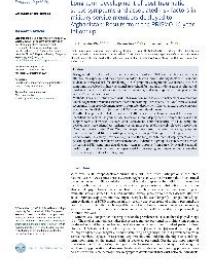Long-term risk for mental health symptoms in Dutch ISAF veterans : the role of perceived social support
Background
Military personnel deployed to combat and peacekeeping missions are exposed to high rates of traumatic events. Accumulating evidence suggests an important association between deployment and the development of other mental health symptoms beyond post-traumatic stress disorder.
Methods
This study examined the prevalence of agoraphobia, anxiety, depression, and hostility symptoms in a cohort of Dutch ISAF veterans (N = 978) from pre-deployment up to 10 years after homecoming. The interaction of potential moderating factors with the change in mental health symptoms relative to pre-deployment was investigated at each time point.
Results
The probable prevalence of agoraphobia, anxiety, depression, and hostility symptoms significantly increased over time to respectively 6.5, 2.7, 3.5, and 6.2% at 10 years after deployment. Except for hostility symptoms, the probable prevalence at 10 years after deployment was the highest compared to all previous follow-up assessments. Importantly, less perceived social support after returning from deployment was found as a risk factor for all different mental health symptoms. Unit support was not associated with the development of mental health problems.
Conclusions
This study suggests a probable broad and long-term impact of deployment on the mental health of military service members. Due to the lack of a non-deployed control group, causal effects of deployment could not be demonstrated. Continued effort should nevertheless be made in the diagnosis and treatment of a wide range of mental health symptoms, even a decade after deployment. The findings also underscore the importance of social support after homecoming and its potential for the prevention of long-term mental health problems.
In: Psychological Medicine ; ISSN: 0033-2917
https://doi.org/10.1017/S0033291721005389
Online ahead of print DOI: 10.1017/S0033291721005389


